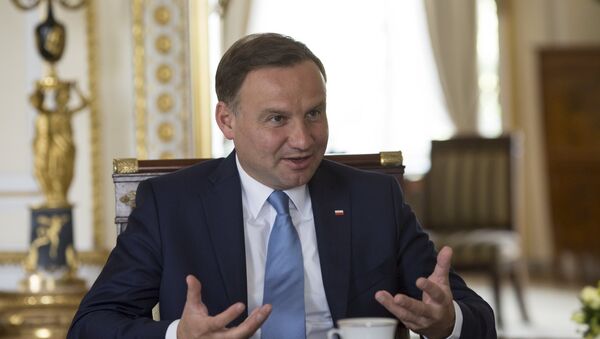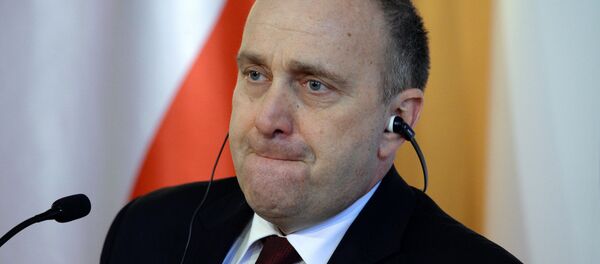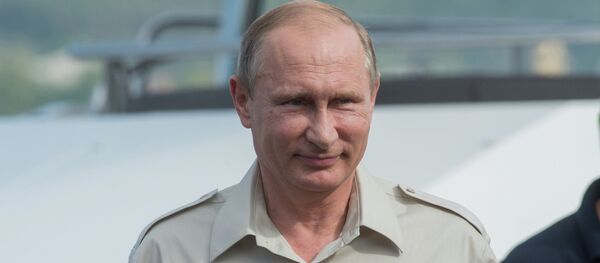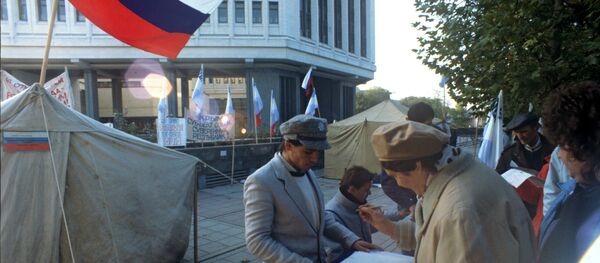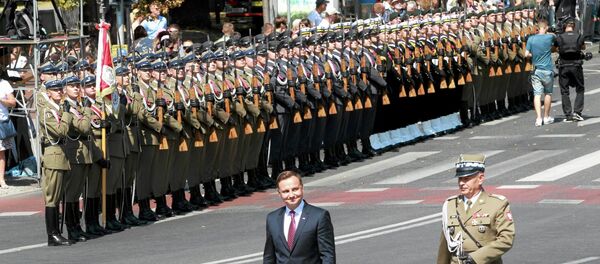Duda insisted that Russia had "violated international law," noting that "this cannot be ignored" and adding that Europe's politicians must push "to insist that the status quo is restored." The president also praised Chancellor Angela Merkel, noting that "she has taken a very tough stance in relation to Russia," and adding that he "would like to see all of Europe supporting her position. Only in this way can real, concrete results be reached…toward ending the conflict in Ukraine, and not just freezing it."
The president did not make clear exactly what means Europe might use to increase its pressure on Moscow, suggesting only that he will look to speak about it during his Berlin visit, and reiterating that his presidency will seek to ensure "a stronger NATO presence in Poland and the region."
The Crimean Issue is Closed
In March of 2014, amid the chaos following the Maidan coup d'état in Kiev, Crimea's residents overwhelmingly supported local authorities' snap proposal to secede from Ukraine and to join Russia, following a referendum in which over 96 percent of eligible voters voted to join Russia, amid voter turnout of 83 percent.
The peninsula's majority ethnic Russian residents made their decision amid threats against the status of the Russian language by the new authorities in post-Maidan Kiev, and by ultranationalist militias, who threatened to destabilize the situation and to crack down violently on pro-Russian sentiment in the area, the same way that Kiev ultimately ended up doing in the south-eastern regions of Donetsk and Lugansk.
The heavily pro-Russian sentiment on the peninsula can easily be explained, given that until 1954, Crimea was actually a subdivision of the Russian republic of the Soviet Union, before Soviet leader Nikita Khrushchev transferred it to Ukrainian republican administration, a move which lawmakers have since deemed unconstitutional.
Following President Putin's decision to accept Crimea's reunification with Russia, the West accused Moscow of meddling in Ukraine's internal affairs, and introduced several rounds of economic sanctions against Moscow, while NATO expanded its presence in Eastern Europe and began a series of large-scale exercises on Russia's borders.
Why Crimea is Actually a Cover for the New Polish Leadership
In all his bluster about Russia's alleged violation of international law, President Duda seems to have forgotten Poland's instrumental role in promoting the Euromaidan scenario in Kiev, which led directly to the Crimean, and later Russian, response. It's worth remembering not only former Prime Minister Donald Tusk's key role in pushing the EU's Eastern Partnership initiative, aimed at increasing the EU's influence in Ukraine, but also evidence that some of the ultranationalist youth which would go on to play a key role in the Maidan were trained in camps in Poland. Poland's initiatives in the run-up to the events of Maidan prove that as far as Warsaw is concerned, Russia's reaction to the crisis could be seen as an unexpected, out of the blue response.
In an interview for Polish daily newspaper Nasz Dziennik earlier this week, divisional general Roman Polko, a prominent Duda supporter, admitted that the new NATO infrastructure in Poland will be necessary "regardless of what is happening in Ukraine." The former special forces commander gave a refreshingly honest explanation of Duda's militaristic approach, stating that it is merely a continuation of the "policies of late President Lech Kaczynski," who promoted the strengthening of NATO's eastern flank long before the emergence of the crisis in Ukraine.
